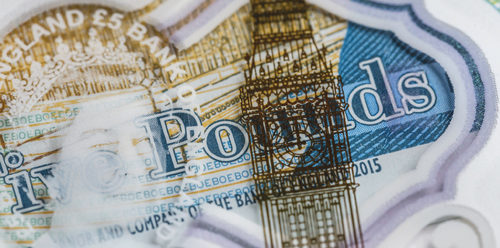
The economic outlook was already choppy, but looming conditions now have the makings of a ‘Perfect Storm’, and local businesses must heed these warnings in trying to steer the best possible course over coming months and years.
‘Tornado Trump’ is one factor - the new US President is unpredictable to the point where perhaps even he doesn’t know quite what he will do next! But his tough stance against nuclear renegade North Korea’s even more unpredictable leader, Kim Jong-un - also potentially involving those other major Asian economies, China, Japan and South Korea - is the biggest concern to global economics and peace. And it comes at a time when the European Union – a political and economic moderator in the world – is also troubled.
Members have been rocked by Brexit, a traumatic French election - though the new pro-EU President Emmanuel Macron could be a stabiliser - and imminent German elections, where Chancellor Angela Merkel’s position looks uncharacteristically weak.
All markets also get nervous when the oil industry does. Prices have risen as major players like Saudi Arabia cut production in a bid to boost revenues and move to a more broad-based economy, and it is noticeable that BP and Shell are among the stock market’s front runners at present. But an upward trend simply makes US shale oil production more viable and undermines producers aiming to sustain oil revenues.
The long-term outlook for oil could also be much weaker as the automotive industry races towards a low-carbon - through hybrid electric cars - and ultimately non-fossil fuel future, currently championed by US billionaire, Elon Musk and his Tesla electric car brand. Such a shift could have a major impact on the strength and stability of economies underpinned by oil.
Much of the above is also reflected in currency issues, notably Sterling and the Euro’s weakness, while China’s Yuan looks deliberately under-valued, as the rulers of the world’s number two economy try to stop it running out of steam after a miraculous boom.
Meanwhile, the UK position is a mixed bag, not made any easier by the run-in to a General Election where Brexit and a strong government to negotiate it was the key issue, until Theresa May’s wobble over care reform. UK positives such as low wage growth and near full employment are countered by lower economic growth (currently 1.9%), rising inflation (currently 2.8%), persistent UK trade and budget deficits; the government recently announced that it does not now plan to balance the budget books until 2025, though its borrowing cost (currently around £50bn) has been driven steadily downwards and now stands at a third of what it was in 2009/10.
And while employment does seem to be defying gravity at present, with some experts saying it is edging towards full capacity, businesses must surely stop hiring as they hedge their bets in the face of the above negatives.
Even here there is a caveat, as the latest immigration/emigration figures show that the difference between the two statistics is narrowing - more EU residents are returning home, perhaps nervous of staying on in the UK as it gears up to leave the Union.
On the other hand, they could be leaving for purely commercial reasons. The pound they were used to earning, perhaps to keep a family back home or build a new life on their return, is no longer worth as much.
And like native Britons, they will have seen wages stagnate at a time when inflation and borrowing are both predicted to rise, the latter fueled by quantitative easing and PPI windfall cash running out of steam.
All of which begs the question, was Theresa May and her advisors’ timing of the General Election less about Brexit and ‘strong and stable Government’, and more to do with the possibility that the economy might have been much weaker by the time Parliament reached the end of its fixed term?
Mrs May presumably hoped that the election would leave her better placed to weather unpopularity that will surely come with that economic weakness, and have enough seats in Parliament to carry through what we all hope will be a good Brexit deal despite worrying speculation over any divorce bill - some say it will be as much as £80bn or £11k per household.
Instead, Mrs May was handed a hung parliament, not the result she wanted, not the decisive result the country needed, and it also weakens the government’s hand at the Brexit negotiating table.
And yet again the Tories have suffered a self-inflicted wound, their poor election campaign demonstrates that they really do need to learn to listen to and connect more with the people. On the other hand, we seem to have avoided Labour’s desire to impose the highest rates of tax the UK would have seen in peacetime. This would have affected all of us, not just those considered wealthy. So, in short, invest in something secure - there are shaky times ahead!
Richard Spofforth is the regional managing partner at leading accountancy, business advisory and financial services firm Kreston Reeves.
Email richard.spofforth@krestonreeves.com
www.krestonreeves.com





